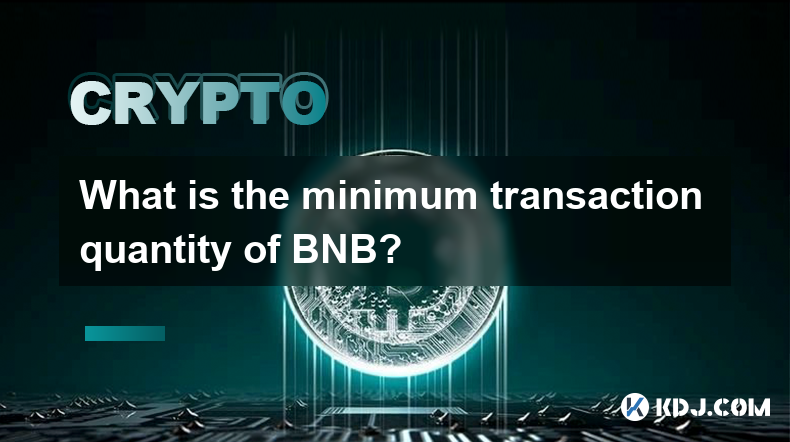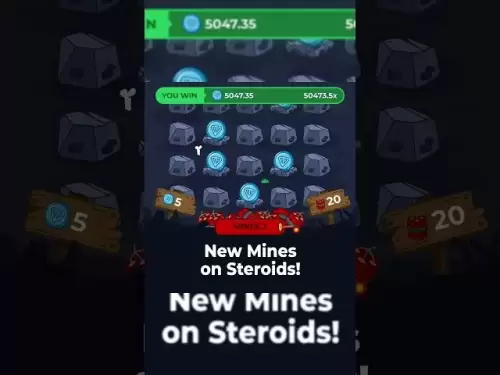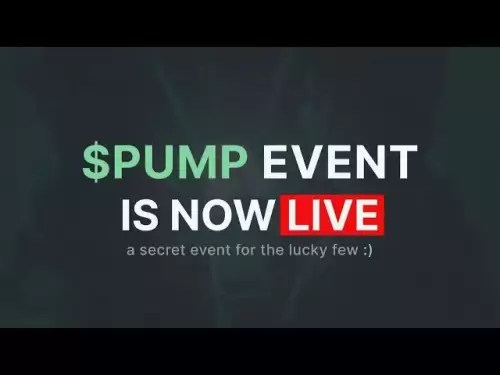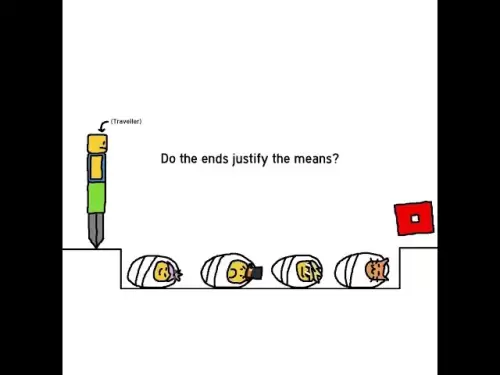-
 Bitcoin
Bitcoin $120400
1.77% -
 Ethereum
Ethereum $3615
7.90% -
 XRP
XRP $3.580
17.84% -
 Tether USDt
Tether USDt $1.001
0.06% -
 BNB
BNB $729.4
1.25% -
 Solana
Solana $179.9
5.04% -
 USDC
USDC $0.0000
0.01% -
 Dogecoin
Dogecoin $0.2311
8.22% -
 TRON
TRON $0.3226
4.04% -
 Cardano
Cardano $0.8490
12.85% -
 Hyperliquid
Hyperliquid $46.45
0.72% -
 Stellar
Stellar $0.4913
8.54% -
 Sui
Sui $4.027
2.00% -
 Chainlink
Chainlink $18.51
11.67% -
 Hedera
Hedera $0.2818
21.51% -
 Avalanche
Avalanche $24.03
7.40% -
 Bitcoin Cash
Bitcoin Cash $508.5
2.90% -
 Shiba Inu
Shiba Inu $0.00001496
3.24% -
 UNUS SED LEO
UNUS SED LEO $8.961
1.83% -
 Toncoin
Toncoin $3.264
3.13% -
 Litecoin
Litecoin $104.6
8.15% -
 Polkadot
Polkadot $4.389
6.11% -
 Uniswap
Uniswap $9.924
10.63% -
 Monero
Monero $337.9
0.49% -
 Pepe
Pepe $0.00001376
2.79% -
 Bitget Token
Bitget Token $4.830
2.46% -
 Ethena USDe
Ethena USDe $1.001
0.05% -
 Dai
Dai $1.000
0.02% -
 Aave
Aave $325.2
1.66% -
 Bittensor
Bittensor $423.7
-0.85%
What is the minimum transaction quantity of BNB?
The minimum transaction quantity of BNB varies by platform: 0.001 BNB for trading on Binance, 0.00000001 BNB for wallet transfers, and 1 BNB for some staking services.
Apr 20, 2025 at 08:50 pm

When discussing the minimum transaction quantity of BNB (Binance Coin), it's essential to understand the various contexts in which BNB is used, including trading, transfers, and staking. The minimum transaction quantity of BNB can vary based on the platform or service you are using. This article will explore the minimum transaction quantities for different use cases, including trading on the Binance exchange, transferring BNB between wallets, and participating in staking or other DeFi activities.
Minimum Transaction Quantity on Binance Exchange
On the Binance exchange, the minimum transaction quantity of BNB for trading pairs can differ. The minimum order size is determined by the specific trading pair and is typically set to ensure liquidity and efficient trading. For instance, when trading BNB against USDT, the minimum order size might be set at 0.001 BNB. This minimum can be found in the trading interface of the Binance platform.
- Navigate to the Binance website and log in to your account.
- Go to the trading section and select the BNB/USDT trading pair.
- Look for the "Minimum Order Size" information displayed on the trading interface.
Minimum Transaction Quantity for Wallet Transfers
When transferring BNB between wallets, the minimum transaction quantity is often determined by the blockchain's network fees and the capabilities of the wallet software. For BNB, the minimum transaction amount is typically set to 0.00000001 BNB to account for the smallest unit of BNB, known as a "wei." This ensures that even the smallest transactions can be processed.
- Open your BNB-compatible wallet, such as Trust Wallet or MetaMask.
- Select the option to send BNB.
- Enter the recipient's address and the amount you wish to send, ensuring it is at least 0.00000001 BNB.
- Review the transaction details and confirm the transfer.
Minimum Transaction Quantity for Staking and DeFi
In the context of staking and decentralized finance (DeFi) platforms, the minimum transaction quantity of BNB can vary significantly. Some platforms may require a minimum stake of 1 BNB to participate in staking programs, while others might allow smaller amounts. For DeFi applications, the minimum transaction quantity might be influenced by the specific protocol's requirements.
- Visit a DeFi platform or staking service that supports BNB.
- Check the platform's documentation or user interface for the minimum staking amount.
- If the minimum is, for example, 1 BNB, ensure you have at least that amount available in your wallet.
- Follow the platform's instructions to stake your BNB.
Minimum Transaction Quantity for BNB Smart Chain (BSC)
The BNB Smart Chain (BSC) is another important context where BNB is used. For transactions on BSC, the minimum transaction quantity is also 0.00000001 BNB, aligning with the smallest unit of BNB. This ensures that transactions on BSC can be as granular as possible, allowing for efficient microtransactions.
- Use a BSC-compatible wallet, such as MetaMask configured for BSC.
- Initiate a transaction on the BSC network, ensuring the amount is at least 0.00000001 BNB.
- Confirm the transaction details and proceed with the transfer.
Factors Influencing Minimum Transaction Quantities
Several factors can influence the minimum transaction quantity of BNB across different platforms and use cases. These include network fees, platform policies, liquidity requirements, and the specific use case of BNB. Understanding these factors can help users navigate the minimum transaction requirements more effectively.
- Network fees: Higher network fees might necessitate larger minimum transaction amounts to ensure cost-effectiveness.
- Platform policies: Different platforms may set their own minimums based on their operational requirements.
- Liquidity requirements: Trading platforms might set minimums to maintain liquidity in trading pairs.
- Use case: Staking or DeFi platforms might have different minimums based on the nature of their services.
Practical Examples of Minimum Transaction Quantities
To provide a clearer understanding, let's look at some practical examples of minimum transaction quantities for BNB across different scenarios.
- Trading on Binance: When trading BNB/USDT, the minimum order size might be 0.001 BNB.
- Transferring between wallets: The minimum amount for a BNB transfer between wallets is 0.00000001 BNB.
- Staking on a DeFi platform: A platform might require a minimum of 1 BNB to participate in staking.
- Transactions on BSC: The minimum transaction amount on the BNB Smart Chain is 0.00000001 BNB.
Frequently Asked Questions
Q: Can the minimum transaction quantity of BNB change over time?
A: Yes, the minimum transaction quantity of BNB can change based on updates to platform policies, network fee adjustments, or changes in the requirements of specific use cases. It's important to stay informed through official channels and platform updates.
Q: Are there any penalties for attempting to send less than the minimum transaction quantity of BNB?
A: Attempting to send less than the minimum transaction quantity might result in the transaction being rejected or not processed. It's crucial to adhere to the minimum requirements to ensure successful transactions.
Q: How can I check the current minimum transaction quantity for BNB on a specific platform?
A: To check the current minimum transaction quantity, visit the platform's official website or user interface. Look for sections related to trading, transfers, or staking, where the minimum amounts are usually specified. If in doubt, consult the platform's support or documentation.
Q: Does the minimum transaction quantity of BNB affect the speed of transactions?
A: The minimum transaction quantity itself does not directly affect the speed of transactions. However, network congestion and fee settings can influence transaction speed, and adhering to minimum requirements ensures that transactions are processed efficiently within the network's capabilities.
Disclaimer:info@kdj.com
The information provided is not trading advice. kdj.com does not assume any responsibility for any investments made based on the information provided in this article. Cryptocurrencies are highly volatile and it is highly recommended that you invest with caution after thorough research!
If you believe that the content used on this website infringes your copyright, please contact us immediately (info@kdj.com) and we will delete it promptly.
- MEXC's Q2 Domination: Riding the Crypto Wave to Market Leadership
- 2025-07-18 18:30:12
- Caldera (ERA) Takes Flight: Binance Listing Ignites Crypto Surge
- 2025-07-18 19:10:13
- Hex Trust and Algorand: Institutional Staking Rewards Take Center Stage
- 2025-07-18 19:50:13
- XRP, Ethereum, and the Crypto Rotation: Where's the Smart Money Going?
- 2025-07-18 19:15:13
- DeFi Lending, Fintech, and Morpho: A New Era?
- 2025-07-18 19:50:13
- Ethereum, Litecoin, and Institutional Crypto: What's the Deal?
- 2025-07-18 19:55:13
Related knowledge

How to customize USDT TRC20 mining fees? Flexible adjustment tutorial
Jun 13,2025 at 01:42am
Understanding USDT TRC20 Mining FeesMining fees on the TRON (TRC20) network are essential for processing transactions. Unlike Bitcoin or Ethereum, whe...

USDT TRC20 transaction is stuck? Solution summary
Jun 14,2025 at 11:15pm
Understanding USDT TRC20 TransactionsWhen users mention that a USDT TRC20 transaction is stuck, they typically refer to a situation where the transfer...

How to cancel USDT TRC20 unconfirmed transactions? Operation guide
Jun 13,2025 at 11:01pm
Understanding USDT TRC20 Unconfirmed TransactionsWhen dealing with USDT TRC20 transactions, it’s crucial to understand what an unconfirmed transaction...

How to check USDT TRC20 balance? Introduction to multiple query methods
Jun 21,2025 at 02:42am
Understanding USDT TRC20 and Its ImportanceUSDT (Tether) is one of the most widely used stablecoins in the cryptocurrency market. It exists on multipl...

What to do if USDT TRC20 transfers are congested? Speed up trading skills
Jun 13,2025 at 09:56am
Understanding USDT TRC20 Transfer CongestionWhen transferring USDT TRC20, users may occasionally experience delays or congestion. This typically occur...

The relationship between USDT TRC20 and TRON chain: technical background analysis
Jun 12,2025 at 01:28pm
What is USDT TRC20?USDT TRC20 refers to the Tether (USDT) token issued on the TRON blockchain using the TRC-20 standard. Unlike the more commonly know...

How to customize USDT TRC20 mining fees? Flexible adjustment tutorial
Jun 13,2025 at 01:42am
Understanding USDT TRC20 Mining FeesMining fees on the TRON (TRC20) network are essential for processing transactions. Unlike Bitcoin or Ethereum, whe...

USDT TRC20 transaction is stuck? Solution summary
Jun 14,2025 at 11:15pm
Understanding USDT TRC20 TransactionsWhen users mention that a USDT TRC20 transaction is stuck, they typically refer to a situation where the transfer...

How to cancel USDT TRC20 unconfirmed transactions? Operation guide
Jun 13,2025 at 11:01pm
Understanding USDT TRC20 Unconfirmed TransactionsWhen dealing with USDT TRC20 transactions, it’s crucial to understand what an unconfirmed transaction...

How to check USDT TRC20 balance? Introduction to multiple query methods
Jun 21,2025 at 02:42am
Understanding USDT TRC20 and Its ImportanceUSDT (Tether) is one of the most widely used stablecoins in the cryptocurrency market. It exists on multipl...

What to do if USDT TRC20 transfers are congested? Speed up trading skills
Jun 13,2025 at 09:56am
Understanding USDT TRC20 Transfer CongestionWhen transferring USDT TRC20, users may occasionally experience delays or congestion. This typically occur...

The relationship between USDT TRC20 and TRON chain: technical background analysis
Jun 12,2025 at 01:28pm
What is USDT TRC20?USDT TRC20 refers to the Tether (USDT) token issued on the TRON blockchain using the TRC-20 standard. Unlike the more commonly know...
See all articles

























































































